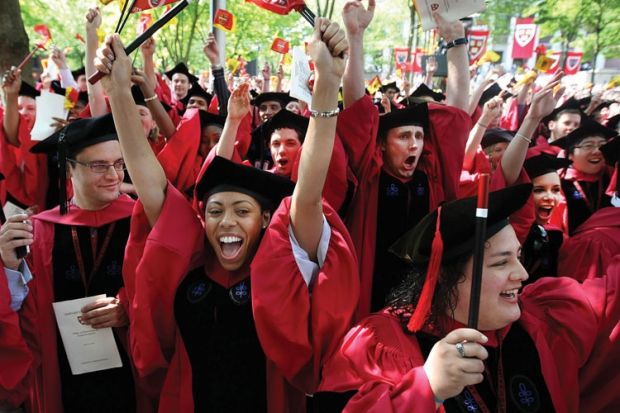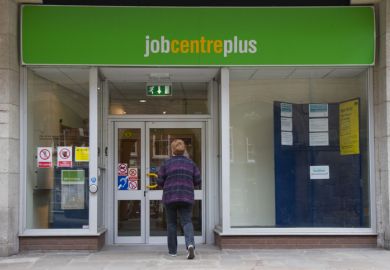Throwing another wrench into the belief that higher education is the great equaliser, a new paper suggests that African American graduates from elite institutions in the US do only as well in getting jobs as white candidates from less-selective institutions.
The study, published in the journal Social Forces, shows that while a degree from an elite university improves all applicants’ chances of finding a well-paid job, the ease with which those jobs are obtained is not equal for black and white students, even when they both graduate from an institution such as Harvard University.
A white candidate with a degree from a highly selective university, the paper suggests, receives an employer response for every six CVs he or she submits. A black candidate receives a response for every eight.
White candidates with degrees from less-selective universities can expect to get a response every nine CVs submitted, while equally qualified black candidates need to submit 15.
“Most people would expect that if you could overcome social disadvantages and make it to Harvard against all odds, you’d be pretty set no matter what, but this experiment finds that there are still gaps,” said S. Michael Gaddis, the author of the paper and the Robert Wood Foundation scholar in health policy at the University of Michigan.
“Once you get out, you still have to deal with other human beings who have preconceived notions and misguided stereotypes about why you were able to go to this college.”
The paper is based on the results of an experiment Gaddis conducted in which he created more than 1,000 fake job applicants and applied to jobs online.
The fictional candidates graduated from either highly selective institutions (Harvard University, Stanford University and Duke University) or less selective state universities (the University of Massachusetts at Amherst, the University of California at Riverside and the University of North Carolina at Greensboro). They all had similarly high grade point averages.
Gaddis gave the candidates names that were likely to signal to potential employers what their races were – black male applicants were named Jalen, Lamar and DaQuan; black female applicants were named Nia, Ebony and Shanice; white male applicants were named Caleb, Charlie and Ronny; and white female applicants were named Aubrey, Erica and Lesly.
White job applicants with a degree from an elite university had the highest response rate at 18 per cent. Black candidates with a degree from an elite university had a response rate of 13 per cent, with white candidates holding a degree from a less-selective university following closely at nearly 12 per cent. Black applicants with a degree from a less-selective institution had a response rate of less than 7 per cent.
Black graduates at elite colleges not only had a response rate similar to that of white graduates from less-selective institutions, but the employers who responded to black applicants were often offering jobs with less prestige and with salaries that trailed those of white candidates by an average of $3,000 (£1,990). “Education apparently has its limits, because even a Harvard degree cannot make DaQuan as enticing as Charlie to employers,” Gaddis wrote.
While the experiment could not measure the odds of applicants landing a job after getting an initial response, Gaddis said, gaps this large at just the first step of the process demonstrate that “a bachelor’s degree, even one from an elite institution, cannot fully counteract the importance of race in the labour market”.
How welcoming a company is to diverse applicants once they meet and interview them means little if they can’t even get in the front door, he added.
“It’s quite possible that these differences are not suggesting that employers are going about trying not to hire black applicants, but there is something going on this lower level,” Gaddis said. “I hope that maybe this research will make people stop and think about what processes we are using when hiring.”
Register to continue
Why register?
- Registration is free and only takes a moment
- Once registered, you can read 3 articles a month
- Sign up for our newsletter
Subscribe
Or subscribe for unlimited access to:
- Unlimited access to news, views, insights & reviews
- Digital editions
- Digital access to THE’s university and college rankings analysis
Already registered or a current subscriber? Login




